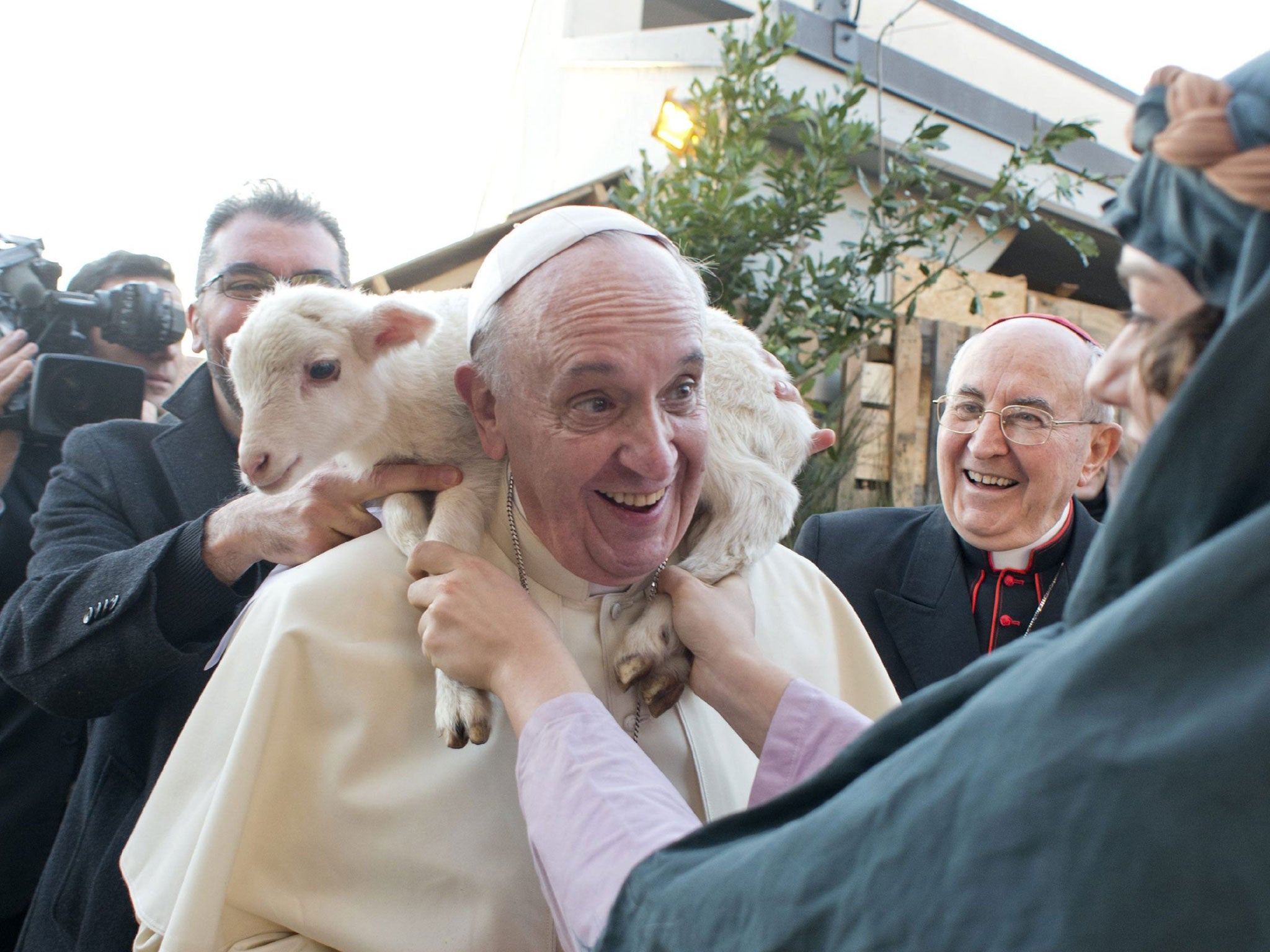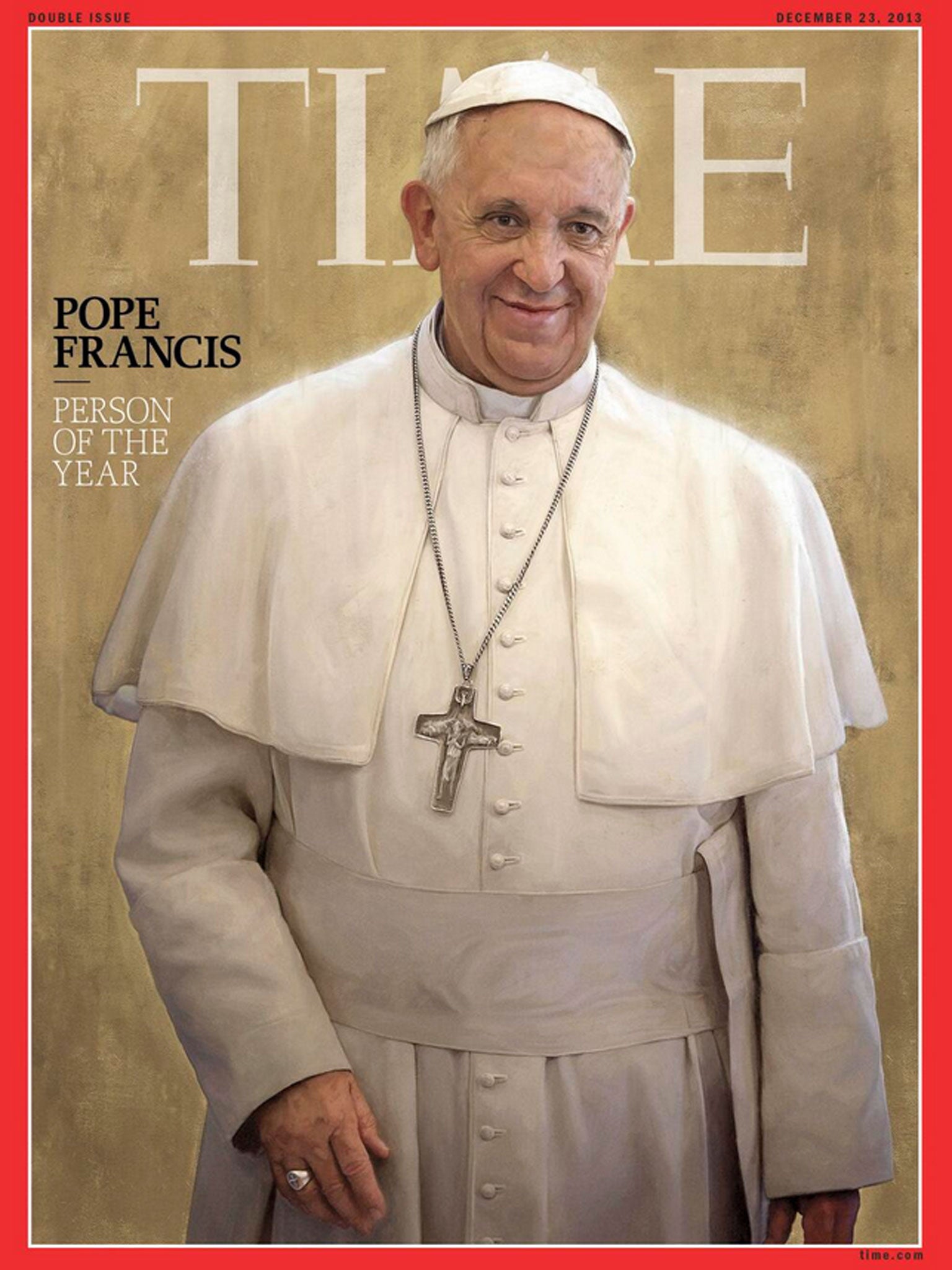Pope Francis lambasts the rich and reminds the world of what matters most
The head of the Church makes a simple point: Modern society is putty in the hands of the wealthy


The applause of the pilgrims he can take for granted. But when Pope Francis receives veiled threats from the Calabrian Mafia and American billionaire investors such as Kenneth Langone, he can be pretty sure he is making an impact.
I wrote last November about the Mafia’s anger over the Pope’s efforts to get rid of corruption in the Vatican Bank, which has long been a favoured piggy-bank for pious money-launderers. But now the fear and rage of filthy rich Catholics has jumped the Atlantic and spread to the capitalist class.
Kenneth Langone is one of the Masters of the Universe, in Tom Wolfe’s phrase, a New York-based businessman and investor worth $2.1bn, according to Forbes, who got into the headlines when, as a leader of the New York Stock Exchange, he endorsed a golden handshake to Exchange president Richard Grasso worth $190m. When Exchange executives repudiated the payment, he told Forbes: “They got the wrong f*cking guy, I’m nuts, I’m rich, and, boy, do I love a fight, I’m going to make them sh*t in their pants.”
The payment, eventually upheld by New York’s highest court, was a textbook example of the evil identified by Pope Francis in his first apostolic exhortation, Evangilii Gaudium, “The Joy of the Gospel”.
“While the earnings of a minority are growing exponentially,” he wrote, “so too is the gap separating the majority from the prosperity enjoyed by the happy few. The imbalance is the result of ideologies that defend the absolute autonomy of the market place and financial speculation.”
Mr Langone is proud of his philanthropic work, boasting that he has given hundreds of millions of dollars to charity. And the Pope’s frontal attack on plutocrats – “pure Marxism” in the opinion of radio shock-jock Rush Limbaugh – has rubbed him up the wrong way. He told CNBC that he had spelled out his views to Cardinal Timothy Dolan, the Archbishop of New York. Warning him that a fellow mega-rich Catholic was, because of the Pope’s anti-capitalist remarks, re-thinking his intention to give a “seven-figure sum” towards the restoration of St Patrick’s Cathedral on Fifth Avenue, Mr Langone said: “I told the Cardinal, ‘Your Eminence, this is one more hurdle I hope we don’t have to deal with … You want to be careful about generalities. Rich people in one country don’t act the same as rich people in another country … There is no nation on earth that is so forthcoming, so giving’.”
Mr Langone is factually correct: according to the Charities Aid Foundation, the US ranks first in the World Giving Index. But the Pope’s point was not about charitable giving. It was about the way modern society is putty in the hands of the wealthy.
The rich, he wrote, “reject the right of states … to exercise any form of control. A new tyranny is thus born, which … imposes its own laws and rules … The thirst for power and possession knows no limits. In this system, which tends to devour everything which stands in the way of increased profits, whatever is fragile, like the environment, is defenceless…”
Limbaugh’s reference to Marx is significant: although at the time he rejected the Marxist-influenced Liberation Theology movement in Argentina, Francis recently showed remorse for that position by reviving the beatification of Oscar Romero, the Archbishop of San Salvador, assassinated in 1980 while celebrating Mass. But there is no reason to think that Francis has embraced Marx. Instead he is going much further back, invoking the moral roots of socialism in Christian doctrine.

In less than a year Pope Francis has presided over the biggest turnaround Christianity has enjoyed since Pope John XXIII and the Second Vatican Council, which committed the Church to a programme of modernisation. But his achievement may in fact be even greater than that.
Ever since the fall of the Berlin Wall, the left has been groping for something to replace the socialist ideology that crashed and burned. And it keeps coming up empty-handed.
The failure of New Labour’s mission in Britain was typical of the knots into which they tied themselves, stoking an unsustainable boom on the assumption that the trickling-down of overspill from the porkers’ troughs would be enough to finance the good works they had in mind. The Pope has nailed the futility of that hope in a vivid image.
“The promise,” he wrote, “was that when the glass was full, it would overflow, benefiting the poor. But what happens instead is that when the glass is full, it magically gets bigger and nothing ever comes out for the poor.”
The Pope has not found a magic economic formula to put socialism back on the rails. That’s not a cleric’s business. All he has done is to put Christians – going far beyond the ranks of practising Catholics – back in touch with the most profound and original verities of their faith, and relating those verities to the grotesque inequalities which continue to mushroom all around us.
His insights resonate far beyond the world of faith because socialism had its roots, in Britain and elsewhere, in the Christian gospel. Only later did socialists succumb to the deceptive, pseudo-scientific claims of Marx and his followers, who plotted a precise, materialist path to the Promised Land.
That path proved a dead end more than 20 years ago. Today Francis is doing the vital job of reminding the world, in the most forceful language, that the crucial issues are moral ones.

Join our commenting forum
Join thought-provoking conversations, follow other Independent readers and see their replies